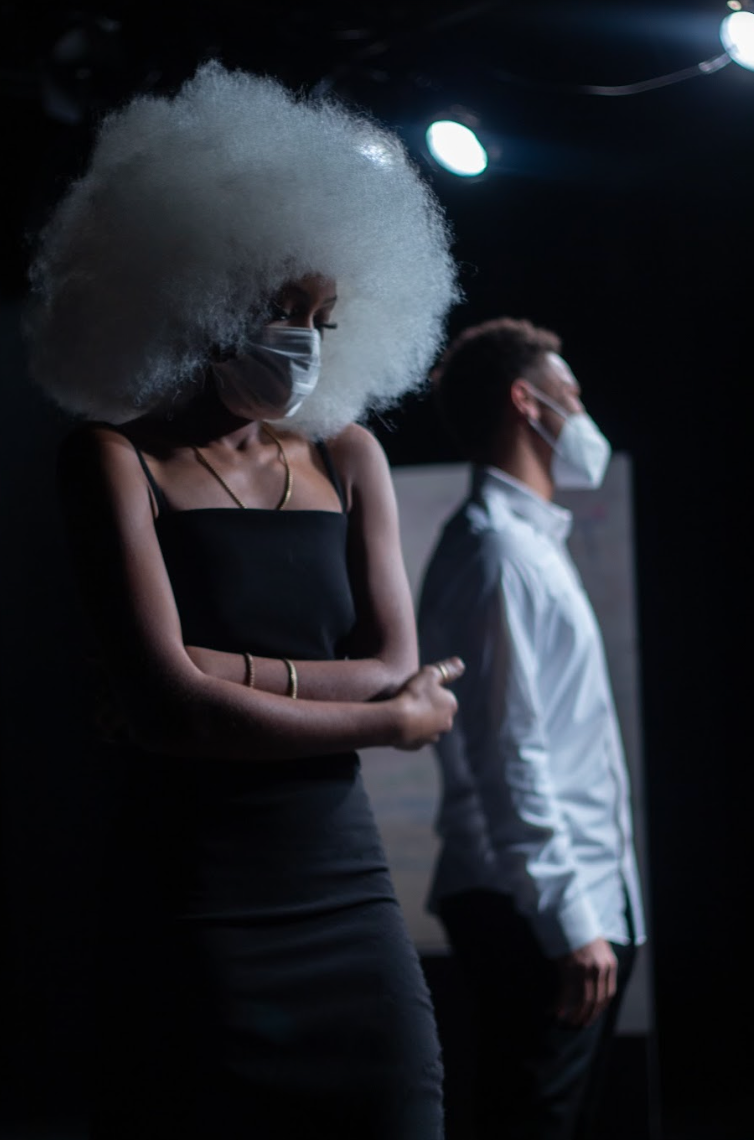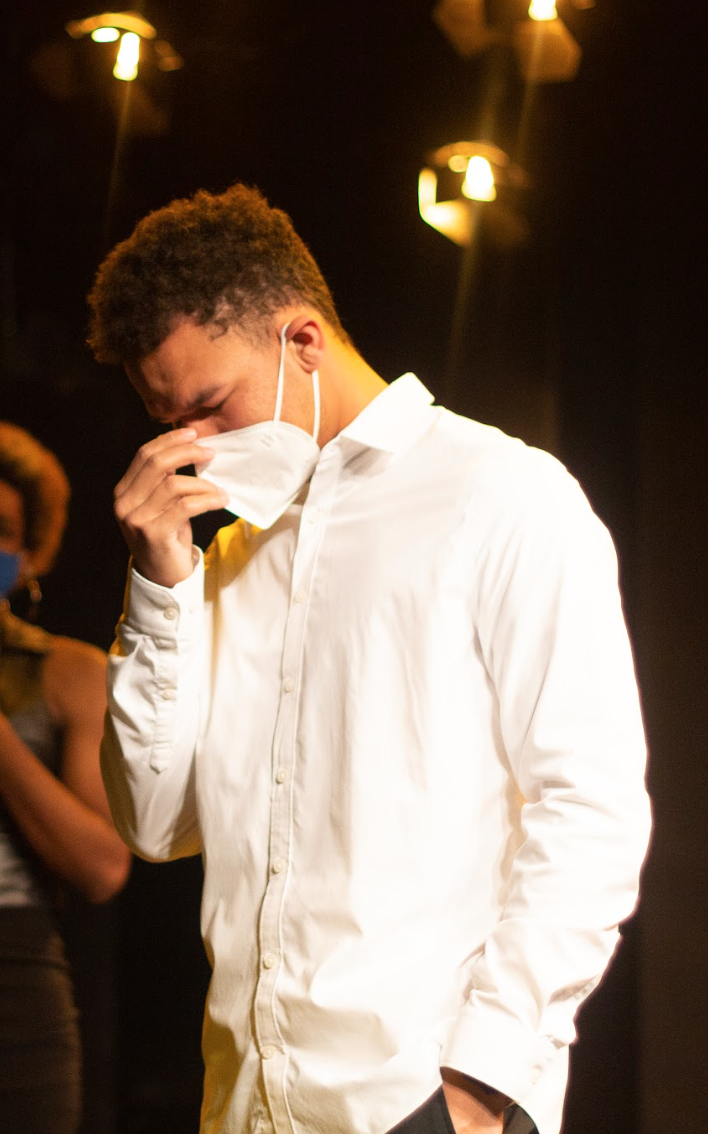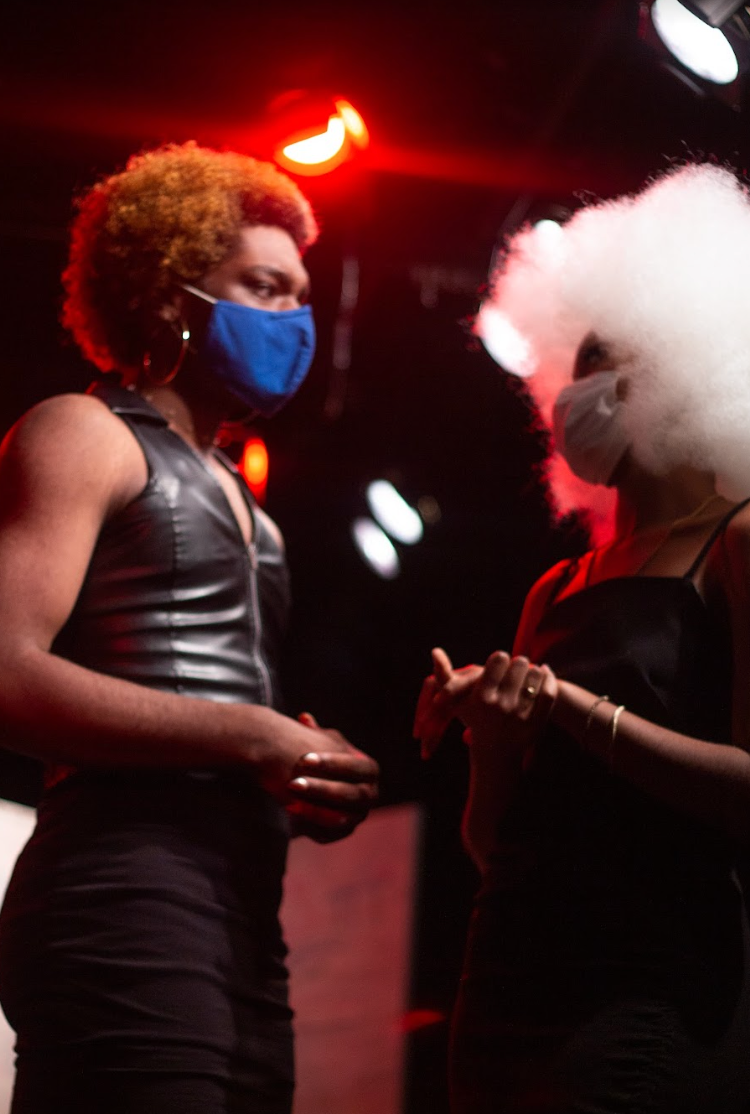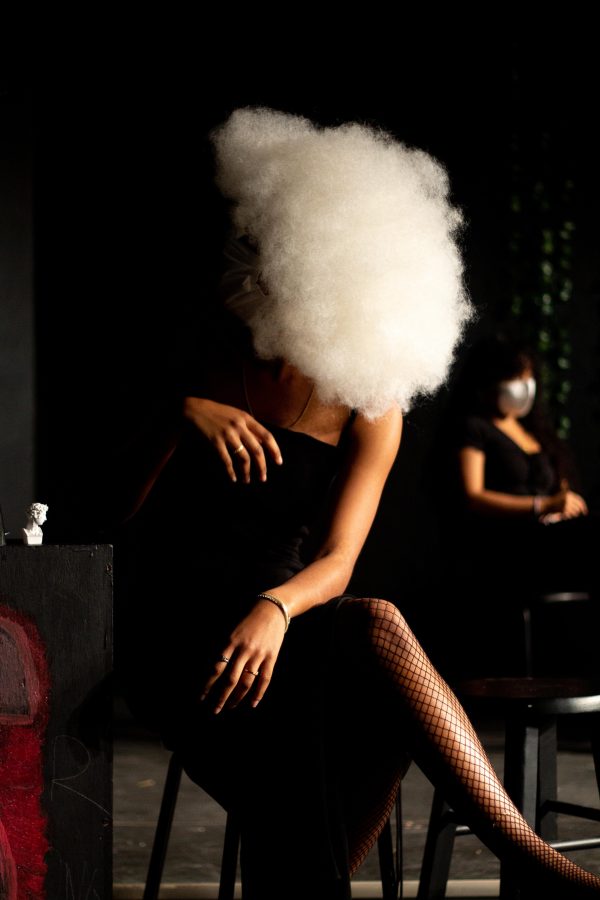All-Black cast putting a spotlight on marginalized communities.
A conversation with student creator and director Octavia Washington.



- What was the inspiration for your play?
Octavia: It’s written after Theater 225, which talked about abstract theater and what it means to create an abstract play. There’s a lot of realism connected to the play in terms of Aphrodite going through her breakup with Adonis. The abstract nature of Aphrodite’s character and her actions aren’t meant to be taken literally. The ending of the play is a metaphorical representation of Aphrodite’s character which the audience progressively sees throughout the play.
Art: My general connection to the play was through the Greek myth of Aphrodite and Adonis. Very interesting to see how the class inspired you to create your own abstract play.
- Could you explain the plot of your play?
O: Aphrodite has been out of a relationship for 2 weeks with her ex Adonis. She’s stuck in a time loop in Pathos Bar, and chaos ensues. Aphrodite has to find a way out of the time loop. The theme of the play is pain. It associates pain to broken cycles and questions how we break those cycles.
A: At the beginning of the play, I didn’t catch on to the continuous time loop. The time loop reveals a lot of development in Aphrodite’s character and later gives her the much needed closure she’s been seeking since the beginning.
- What was the most difficult part about putting out a play in four to five weeks?
O: I’m glad I insisted on doing it in a short time frame, and I am glad I had Jalen (Jalen Causey) as co-director to help relieve some of the burdens of being the main director. It was a lot of work in costume design, set design and emailing the cast for rehearsals, etc. I hate plays and shows that don’t set meaningful intentions for their casts, so I wanted to incorporate as much cast input as possible.
- What did you gain from putting together your first play? What were the major lessons you learned?
O: I wrote and directed a play in high school. The thing that I’ve learned from both of these plays is that I love punishment; not literally, but more so I remember in high school thinking to myself, “Wow, this is so difficult and so much work.” I was like damn, the director has to be present for every rehearsal. I gained a lot of appreciation for playwriting and directing. It’s not easy to write a play with multiple acts and then direct people to bring your story to life. It’s an amazing feeling to have someone read back the lines you wrote for their specific character and then have your cast create their own interpretation of their character. Finally, watching it all come together for an audience—it’s a very affirming feeling.
A: You did a phenomenal job on casting your characters, everyone who played a role definitely brought elements of their own personality into the mix.
- What was the purpose for an all-Black cast?
O: That was the hardest part of the production. I started thinking about an all-Black cast last spring and was thinking it would be really amazing. I have to be one with my text when I talk about Black theories in theater, Black frameworks and making space for Black people to heal from trauma.
The more personal purpose is that being at Carleton is hard. Carleton makes it difficult for black students to build relationships especially in residential spaces. Yet, we make every effort to make space to be with each other in gatherings or events. That’s been really hard for me, as there are very few Black students in the Class of ‘22. It is extremely isolating, so I wanted this space, my production, to be a space of healing for Black people by a Black person.
A: I love that. I definitely agree that your class (Class of 2022) has very few Black students and that sense of community is obviously lost. My year has a greater number, yes, but we still face those systemic oppressive forces while on campus.












